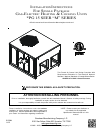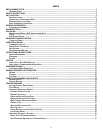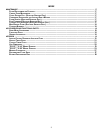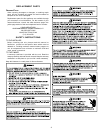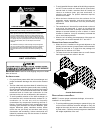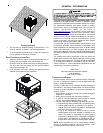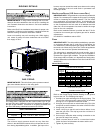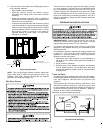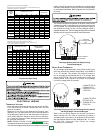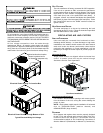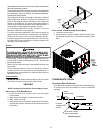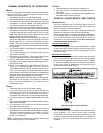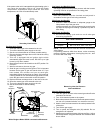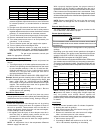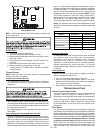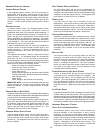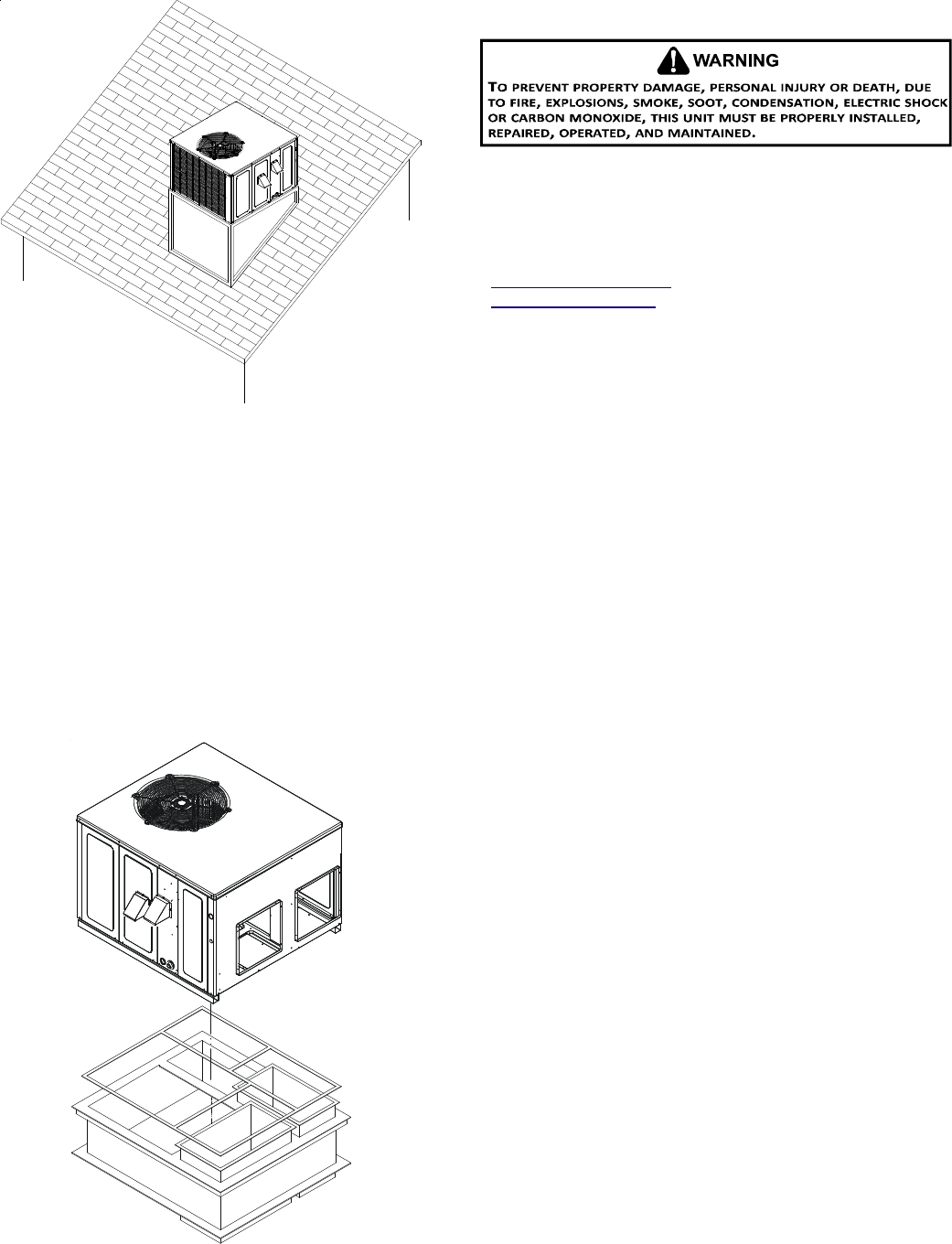
6
Rooftop Installation
• The unit may be installed directly on wood floors or on
Class A, Class B, or Class C roof covering material.
• To avoid possible personal injury, a safe, flat surface for
service personnel should be provided.
ROOF C URB I NSTALLATIONS O NLY:
• Sufficient structural support must be determined prior to
locating and mounting the curb and package unit.
• Ductwork must be constructed using industry guidelines.
The duct work must be placed into the roof curb before
mounting the package unit.
• Curb insulation, cant strips, flashing and general roofing
material are furnished by the contractor.
Roof Curb Installation
GENERAL INFORMATION
This unit is approved for outdoor installation ONLY. Rated
performance is achieved after 72 hours of operation.
Rated
performance is delivered at the specified airflow. See outdoor
unit specification sheet for split system models or product
specification sheet for packaged and light commercial
models. Specification sheets can be found at
www.goodmanmfg.com for Goodman
®
brand products or
www.amana-hac.com for Amana
®
brand products. Within
either website, please select the residential or commercial
products menu and then select the submenu for the type of
product to be installed, such as air conditioners or heat
pumps, to access a list of product pages that each contain
links to that model’s specification sheet.
To assure that your unit operates safely and efficiently, it must
be installed, operated, and maintained in accordance with
these installation and operating instructions, all local building
codes and ordinances, or in their absence, with the latest
edition of the National Fuel Gas Code NFPA 54/ANSI Z223.1
and National Standard of Canada CAN/CSA B149 Installation
Codes.
The heating and cooling capacities of the unit should be
greater than or equal to the design heating and cooling loads
of the area to be conditioned. The loads should be calculated
by an approved method or in accordance with A.S.H.R.A.E.
Guide or Manual J - Load Calculations published by the Air
Conditioning Contractors of America.
Obtain from:
American National Standards Institute
1430 Broadway
New York, NY 10018
TRANSPORTATION D AMAGE
Check the carton upon arrival for external damage. If damage
is found, a request for inspection by carrier agent should be
made in writing immediately.
Carefully inspect the unit for damage including damage to
the cabinetry. Any bolts or screws which may have loosened
in transit must be re-tightened. In the event of damage, the
receiver should:
1. Make notation on delivery receipt of any visible damage to
shipment or container.
2. Notify carrier promptly and request an inspection.
3. In case of concealed damage, carrier should be notified
as soon as possible-preferably within 5 days.
4. File the claim with the following supporting documents:
a. Original Bill of Lading, certified copy, or indemnity bond.
b. Original paid freight bill or indemnity in lieu thereof.
c. Original invoice or certified copy thereof, showing trade
and other discounts or reductions.
d. Copy of the inspection report issued by carrier
representative at the time damage is reported to the
carrier. The carrier is responsible for making prompt
inspection of damage and for a thorough investigation
of each claim. The distributor or manufacturer will not
accept claims from dealers for transportation damage.
NOTE: When inspecting the unit for transportation damage,
remove all packaging materials. Recycle or dispose of the
packaging material according to local codes.



